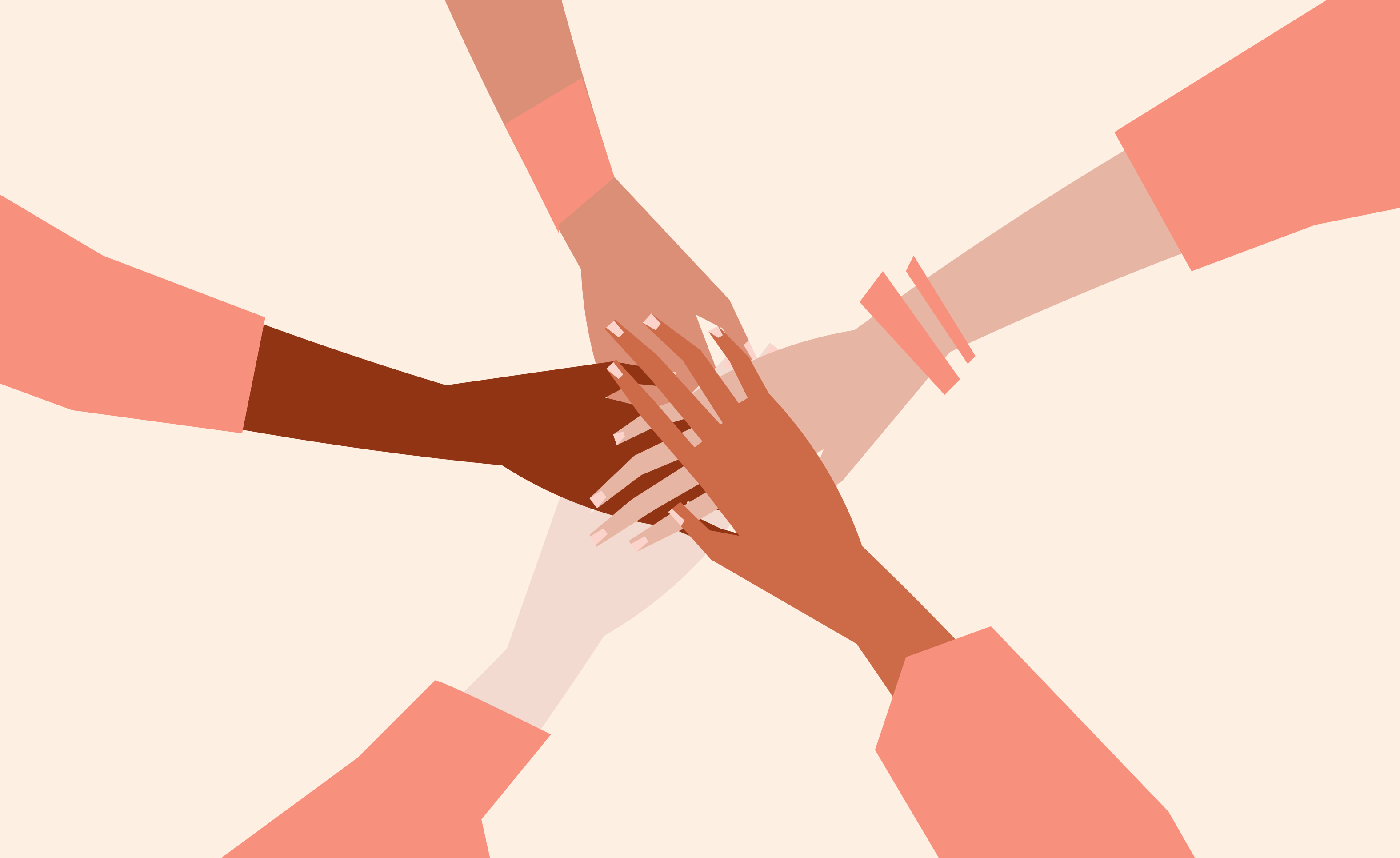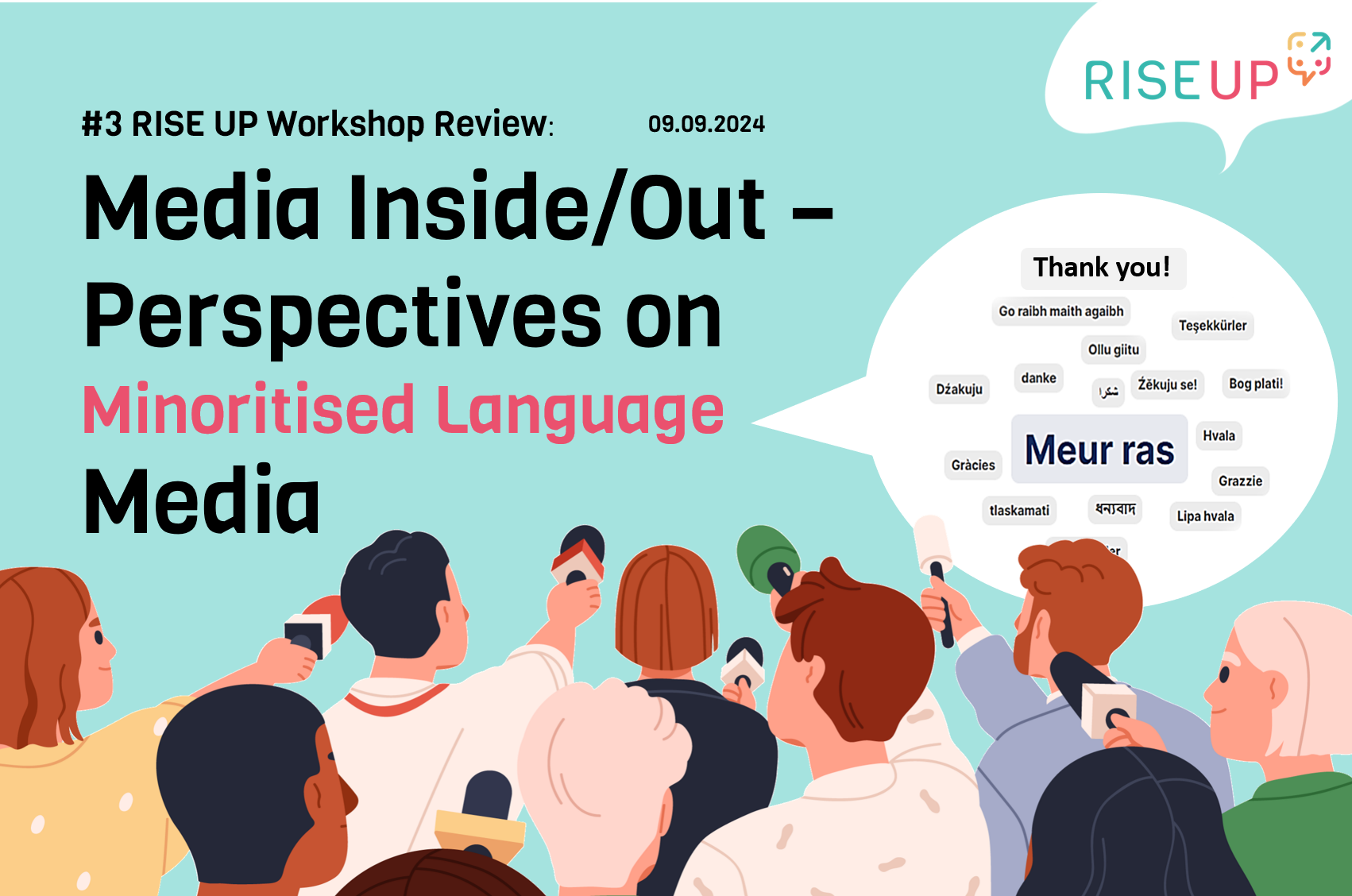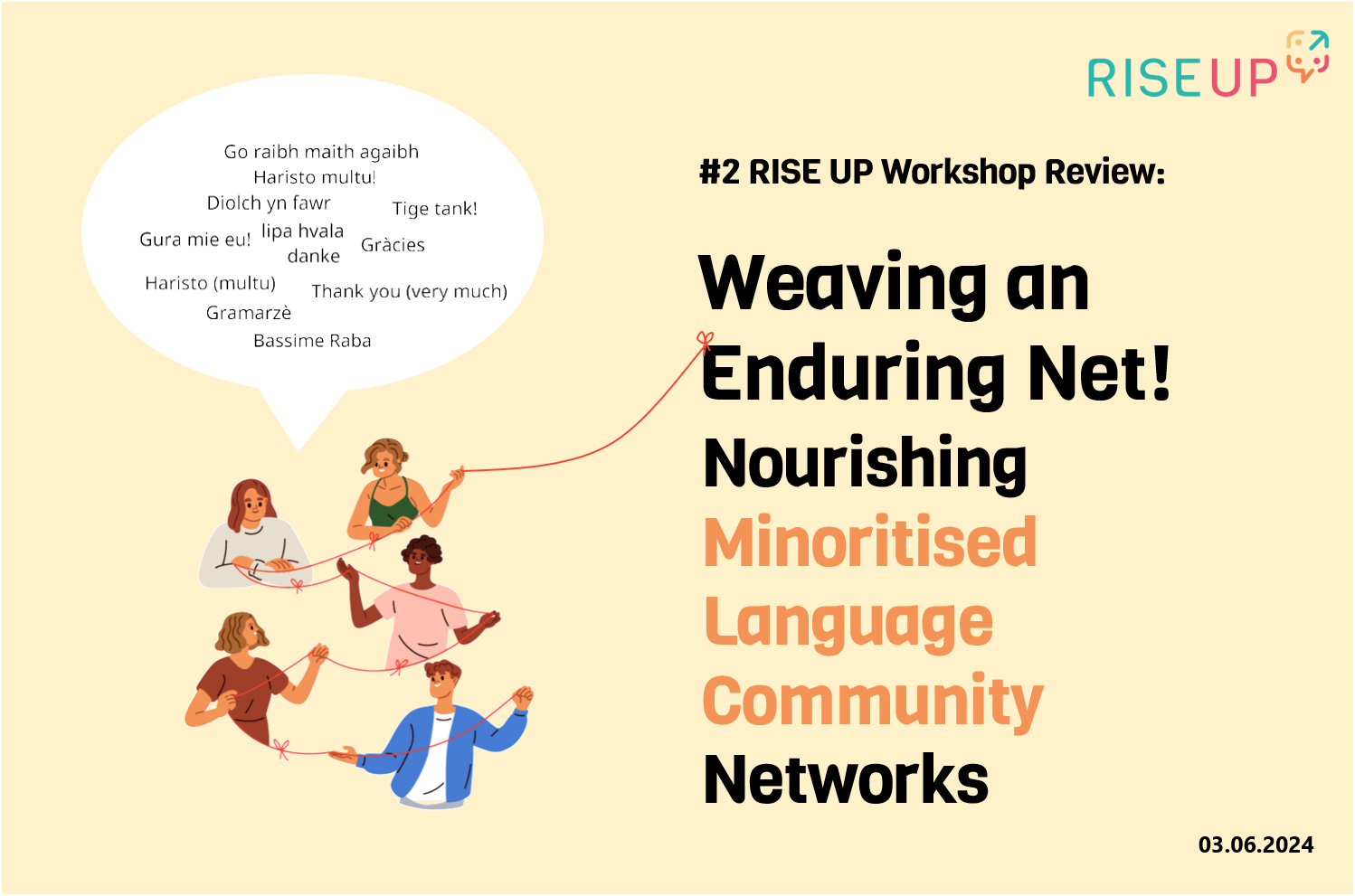
Linking with language initiatives
Keenly aware of RISE UP moving into its third and final year, consortium members are committed to ensuring sustainability of our outputs by building synergies with related projects and initiatives that have emerged from our work to date. In this news edition on project clustering, we are focusing on collaboration with VLingS and HOW TIMELY and briefly sketch other clusters we are hoping to develop further during our last 12 months.
One of the most fruitful collaborations RISE UP has entered to date is with the Serbian “Vulnerable Languages and Linguistic Varieties in Serbia” (VLingS) project. Supported by the Science Fund of the Republic of Serbia, the project created a sociolinguistic questionnaire for the assessment of endangerment/vulnerability of linguistic varieties in Serbia, applied it to seven linguistic communities, documented the linguistic varieties over three generation of speakers and archived the collected material, and generated an interactive map that contains data on each variety, the number of respondents, their demographic characteristics and the researchers who collected the material. The collected material is stored in the Digital Archive of the Institute for Balkan Studies, Serbian Academy of Sciences and Arts. By sharing the content of one of our research tools, the questionnaire, early in the two projects’ lifespans, we could identify commonalities and areas where more evidence would be useful. The results of the RISE UP survey provide an overview of the sociolinguistics situation of our case study communities, including Aromanian, in the Balkans, especially in Romania, North Macedonia and Greece. The VLingS survey and ethnographic interviews provide a more fine-grained picture of cincarski, as Aromanian is called in Serbia. RISE UP, in turn, can build on VLingS’ experience with their more in-depth interview schedule in their ethnographically orientated final year work. RISE UP contributed to the “Vulnerable and Endangered Languages in Europe” (VELE2024) conference in Belgrade in October 2024, and selected results from both projects are published in the conference proceedings. Researchers from both projects are planning to meet up again to discuss how their respective findings could feed into a Europe-wide mapping of endangered/vulnerable linguistics minority communities.
Ideally, the “Linguistic diversity in Poland: collateral languages, language-oriented activities, and conceptualization of collective identity” project, funded by the Polish National Science Center, which also contributed to VELE2024 and the 2024 Mercator conference in Leeuwarden, NL, would join this endeavour, as their survey also seems compatible with the RISE UP and VLingS questionnaires. Personal conversations with researchers from this project revealed that they found no prestige differential between the minority languages they are investigating and the national language among female and male respondents in questions directly targeting prestige; survey questions covertly addressing the symbolic value of languages, on the other hand, revealed a prestige differential similar to that identified by Susan Gal (1978) in Oberwart, Burgenland, Austria and discussed in this RISE UP News Article. So maybe ‘Bauer sucht Frau, immer noch’ (‘Farmer wants a wife, still’)?
Another project RISE UP is closely collaborating with is the Erasmus + (KA220-SCH) project “Handling Our Wor(l)ds in Translation: Intersemiotic strategies for Minority and Endangered Languages’ promotion among Youngers” (HOW TIMELY), which launched in December 2024. HOW TIMELY promotes Minority and Endangered Languages’ (MEL) revitalization among youth through Intermedial/Audio-visual Accessibility & Translation (AVAT). Focusing on three member-states and MELs (Catalan, Irish, Sardinian) and developing from the RISE UP Horizon project, it plans to expand to other MELs post-piloting, employing innovative digital tools for teaching/learning. Both, RISE UP and HOW TIMELY, focus on the revitalisation of endangered minority languages among youth. Sub-teams from both projects are currently fleshing out the idea of a join dubbing / re-voicing initiative. The aim of the initiative is to organise an open online teacher/training portal in which teachers and young people from minoritised language communities from all over the European Union learn how to translate, voice-over / dub and then apply these skills to cultural content relevant to them. They can then transfer cultural materials/footage produced by members of their community from inner circle to outer or expanding circle languages (Kachru 1985) and thus make this cultural content more widely available, or vice versa. One didactic aim of this initiative is to foster both inter- and intra-community collaborations. The Inter-community collaboration is envisaged to take place between participants and facilitators of the portal activities from different European minority communities; the intra-community collaboration is envisaged to take place between different generations of one linguistic minority community. The inter-generation collaboration is expected to be driven between younger activities participants’ need to draw on the language skills of older members of their community in the translation and voice-over/dubbing process, and older community members potentially requiring the support of younger community members in the more technical aspects of the process.
This inter-generational aspect of the collaborative initiative between RISE UP and HOW TIMELY also links is to a Horizon Europe project that is yet to start, i.e. REVIVE (Community-centred language REVItalisation powered by heritage-led storytellling and digital innoVation in Europe). The aim of REVIVE is to promote more meaningful and democratic use 3D immersive technologies and digital innovation in Europe. REVIVE will explore the integrated use of Extended Reality (XR) technologies, data visualisation and archival research for the protection of Europe’s heritage and linguistic capital to avoid cultural dilution, to strengthen European identity, culture and creativity, and to promote mutual understanding and social inclusion in Europe. Like RISE UP, REVIVE will be working with the Cornish community and the aims of all three projects lend themselves to building further synergies between RISE UP, HOW TIMELY and REVIVE. We look forward to working with you and other language and culture initiatives in Europe and further afield.
Author: Eva Duran Eppler
Keywords
Languages, projects, clustering, collaboration, minority languages


